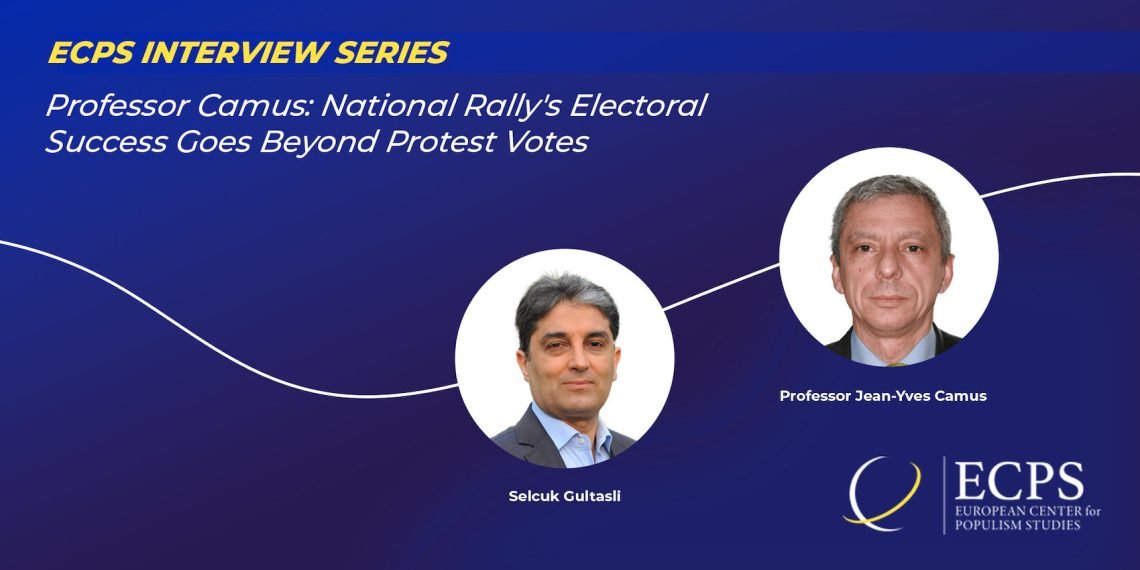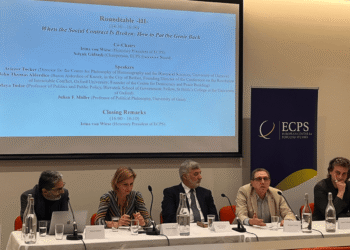Professor Jean-Yves Camus emphasizes that the social and economic policies of President Emmanuel Macron have driven many voters to the National Rally (NR). However, he cautions against viewing this merely as a protest vote. “When a party remains strong for over 50 years, it cannot be solely due to protest,” he notes. According to Camus, NR’s support base reflects a society grappling with increasing inequalities, where many citizens feel deprived of fair opportunities. This sentiment is compounded by a growing resentment towards foreigners, particularly those from North African, West African and Middle Eastern backgrounds.
Interview by Selcuk Gultasli
In an era marked by the rising influence of far-right movements across the globe, the unprecedented success of France’s National Rally (NR) in both the European Parliament elections in early June and the first round of national elections on June 30, 2024, has captured widespread attention. Scholars, politicians and citizens are keenly observing this seismic shift in French politics. To delve deeper into this phenomenon, we are joined by Professor Jean-Yves Camus, a political analyst and Associate Research Fellow at The French Institute for International and Strategic Affairs (IRIS), who is also a distinguished expert on far-right movements.
Reflecting on NR’s recent successes, Professor Camus emphasizes that the social and economic policies of President Emmanuel Macron have driven many voters to the National Rally. However, he cautions against viewing this merely as a protest vote. "When a party remains strong for over 50 years, it cannot be solely due to protest," he notes. According to Camus, NR’s support base reflects a society grappling with increasing inequalities, where many citizens feel deprived of fair opportunities. This sentiment is compounded by a growing resentment towards foreigners, particularly those from North African, West African and Middle Eastern backgrounds. NR voters often believe in a clash of civilizations, perceiving a lack of proper assimilation into French society, especially among Muslim immigrants.
In this interview, Professor Camus provides historical context, current dynamics and future projections for the National Rally. He discusses how the NR’s appeal transcends mere protest, touching on deep-seated issues within French society, such as economic disparities, social mobility and national identity. Camus also explores how the NR’s messaging resonates across various demographics, indicating widespread discontent with traditional political parties. He examines the party’s evolution under Marine Le Pen’s leadership, particularly its ‘normalization’ process, which has made it more palatable to a broader segment of voters.
Additionally, Camus sheds light on the influence of cultural and historical factors, including the legacy of France’s colonial past and the Gaullist tradition of national sovereignty, in shaping contemporary far-right and populist movements. He addresses the complexities of European nationalist parties forming cohesive alliances within the European Parliament and the role of external influences, notably from the US and Russia, on the NR and similar movements.
As France stands on the brink of potentially significant political change, this interview offers a thorough analysis of the forces driving NR’s rise and what its continued success could mean for the future of French politics. Professor Camus’s insights are invaluable for understanding the broader implications of this shift and the underlying currents shaping the political landscape.


